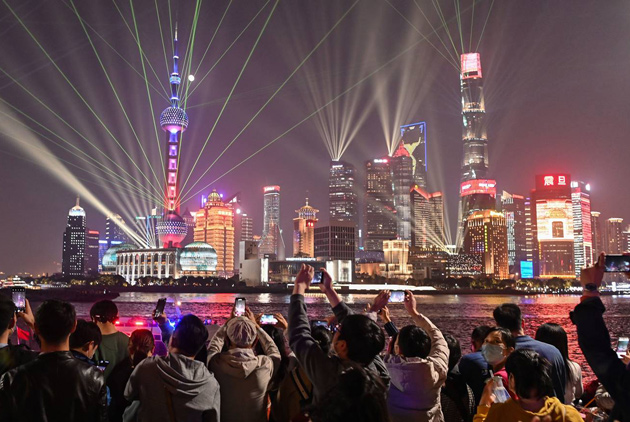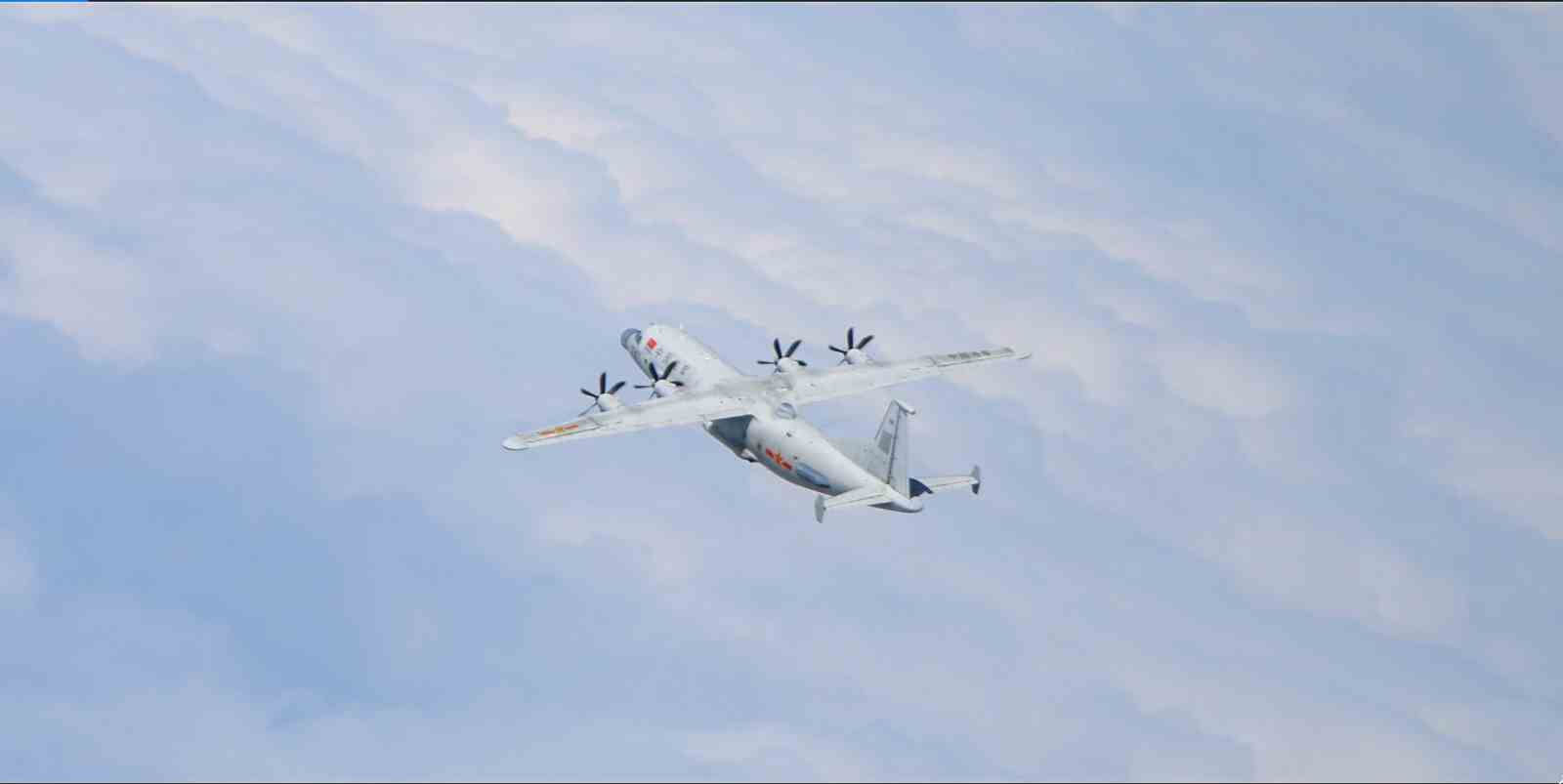Taiwan Strait: Time for a ‘Cold Peace’ or a ‘Hot War’?

Source:Getty Images
Unprecedented breakthroughs in U.S.-Taiwan relations have stoked fears that Taiwan’s ties with China could go from a “cold peace” to a “hot war.” What are the forces that are pushing the two sides in either direction and can Beijing still appeal to Taiwanese youth and businesspeople?
Views
Taiwan Strait: Time for a ‘Cold Peace’ or a ‘Hot War’?
By Linden Chenweb only
2020 has been a year of unprecedented breakthroughs in relations between Taiwan and the United States and of mounting tensions across the Taiwan Strait.
Starting in August, successive visits to Taiwan by U.S. Secretary of Health and Human Services Alex Azar and senior U.S. State Department official Keith Krach symbolized the closer ties between the two countries that encompass epidemic prevention, economic cooperation and the sensitive area of defense security.
Washington’s intensification of its relationship with Taipei has put China on edge, resulting in relentless pressure from China’s military. In November alone, Chinese military planes harassed Taiwan on 26 of 30 days, the most in history. Earlier, in late September and early October, a Chinese warship lingered in waters off the coast of eastern Taiwan. These incursions led many people to wonder if Taipei and Beijing were on the precipice of war.

Douglas Paal, the former director of the Taipei office of the American Institute in Taiwan, believes China’s indirect military pressure has been aimed at getting the U.S. and Taiwan to stop the heightened diplomatic exchanges, such as Azar’s visit, that have gone beyond previous practices, rather than signaling a desire to use force against Taiwan.
China’s wish may come true after American President-elect Joe Biden takes office in January. Biden, who stylistically is steadier and more practical than incumbent President Donald Trump, has expressed the desire to be tough on China and maintain a friendly attitude toward Taiwan. But that does not mean he will continue to send a steady stream of high-ranking officials to visit Taiwan and escalate tensions across the Taiwan Strait.
Tso Chen-dong, a political science professor at National Taiwan University and the director of the opposition Kuomintang (KMT) party’s Mainland Affairs Department, believes that over the next four years, with the U.S. and Taiwan respectively led by the Democratic Party and Democratic Progressive Party (DPP), triangular relations between Washington, Taipei and Beijing could revert to the cold peace of 2016.
“Even though there is disagreement and confrontation across the strait, the situation will not reach a state of war,” Tso predicted.
Taiwan’s Perspective
In her second inauguration speech in May 2020, President Tsai Ing-wen said the principles of peace, parity, democracy and dialogue would be the basis for her handling of relations with China, a proposition that has earned the trust of the United States. Though China was not happy, it could do nothing more than launch a campaign of diplomatic and military intimidation based on a “cold peace” footing.
“She’s been a very capable steward of Taiwan’s cross-Strait relations,” Paal said of Tsai, describing her as always being very careful not to act in a way that would allow Beijing to define her as being provocative.
DPP Legislator Lo Chih-cheng felt that Tsai would have to continue her “stable, non-aggressive” approach on cross-Strait relations in the future and that even if there was a new discourse for engagement, it would not upend the framework of the past.
China’s Perspective
Beijing also sees little chance of a war with Taiwan breaking out, as argued by former Taiwan Deputy Defense Minister Lin Chong-pin (林中斌), long a student of the People’s Liberation Army and cross-Strait relations.
Lin said a major difference between Chinese President Xi Jinping and his predecessors is Xi’s linkage of Beijing’s goal of the “great rejuvenation of the Chinese nation” with resolving the “Taiwan problem.”
Xi is focused on gaining third terms as head of the Chinese Communist Party in 2022 and as president of the country Council in 2023, Lin argued, and the last thing he wants is to turn Taiwan into “scorched earth,” given its important status in his world view.
“There are absolutely no conditions for a hot war across the Taiwan Strait,” Lin said.
That does not mean, however, that China’s military threat will suddenly disappear. Chang Wu-ueh (張五岳), director of Tamkang University’s Graduate Institute of China Studies, expects China’s military exercises and threats of force to become normalized and sustained.
“Their strength and frequency will depend on U.S.-Taiwan relations and whether Taiwan’s efforts to amend the Constitution in 2021 touch on issues related to Taiwan independence,” Chang said.
Brandishing a Carrot and a Stick
At the same time, China will not relent on three positions it is pushing to promote unification with Taiwan: “one China, anti-independence” (to suppress the sovereignty and international space of the Republic of China), “one China, promote integration” (to promote cross-Strait social and economic integration), and “one China, promote talks” (to compel Taiwan to accept China’s socialist and centralized systems).
Lin believed that in this “cold peace” environment, China will prioritize non-military means, such as legal, psychological and opinion offensives, to replace military confrontations in pursuing those goals.
In late November 2020, China’s Taiwan Affairs Office confirmed that Beijing was drafting a list of “stubborn Taiwan secessionists” consisting of the “leaders who organize, plan, and implement secession activities both inside and outside the [Taiwan] island and their sponsors and other main supporters.” It said these activists “will be tried by the people in accordance with the law and punished by history.”
In other words, Beijing has decided to hold a whip in one hand, invoking different laws to punish people it accuses of splitting apart the country or undermining national unity while deterring those who might be so inclined. On the other hand, however, it is holding the proverbial carrot, continuing to offer incentives to Taiwanese to win over their hearts and minds.
Chang of Tamkang University said that if China’s two major annual political meetings (the National People’s Congress and the Chinese People’s Political Consultative Conference) are held in March 2021 as scheduled, China will offer further enticements to Taiwan.
Among them could be moves to strengthen cross-Strait industrial cooperation, build a common market, and allow Taiwanese businesses to participate in new infrastructure projects within China and in “Belt and Road” initiatives outside of China, Chang said. It could also promise assistance to Taiwanese-invested companies in China that want to go public there.
In any case, Chang expected China to continue to bolster its “one China, promote integration” approach.
“It could put Taiwanese businesses in China and Taiwanese nationals on an equal footing with Chinese companies and Chinese citizens, but of course that would also imply certain responsibilities and obligations [supporting cross-Strait social and economic integration],” he said.
No Longer the Gold Mine for Taiwanese
China, however, is no longer a figurative gold mine for Taiwanese businesses and youth. In fact, many Taiwanese companies have gotten out of China because of the U.S.-China trade war and the resulting high punitive tariffs levied by Washington on Chinese imports.
The Economist has also noted that Chinese companies are becoming more competitive and innovative, and that even if Taiwanese businesses benefit from the incentives being constantly thrown their way by Chinese authorities, they might still not feel capable of overcoming Chinese rivals and winning large-scale government tenders.
Another issue according to the Economist is generational change. Many of the managers sent by Taiwanese companies in the 1980s and 1990s to oversee their operations in China are now reaching retirement age, and the younger generation is less willing than previous generations to go West to develop their careers, leading companies to consider their futures there.
Those issues have made it unlikely that Taiwanese businesses or young professionals will experience another golden era in China.
Jason Chin (晉麗明), senior vice president of the Headhunter Business Group for online recruitment service provider 104 Corporation, said that as the Chinese economy has slowed over the past three years, the salaries Taiwanese talent can command by “heading West” have been on the decline.
Outside of the semiconductor industry, which is being aggressively supported by the Chinese government, salary offers 50-100 percent higher than pay levels in Taiwan that were once the standard for luring Taiwanese talent are increasingly difficult to find, making China less attractive to Taiwanese professionals than in the recent past.
The trend also signals that Taiwanese youth and businesspeople, who have shaped a foundation of trust in non-governmental exchanges across the Taiwan Strait, are now gradually leaving China.
Given the situation, Tamkang University’s Chang suggests that Taiwan and China “should push for stability rather than for ideal relations.”
He said the two sides should focus on avoiding misjudgments by the two governments, preventing accidents, and building crisis management mechanisms, while also reducing the misunderstandings felt by people across the Strait and keep their enmity from deepening.
That is the formula, Chang argued, to keep a cold peace from turning into a hot war.
Have you read?
♦ As Taiwan’s GDP Per Capita Caps US$30,000, Grimmer Days Lie Ahead
♦ Pratas Island Tensions: Could This Be War?
♦ What a Biden presidency means for US-China relations
Translated by Luke Sabatier
Uploaded by Penny Chiang






